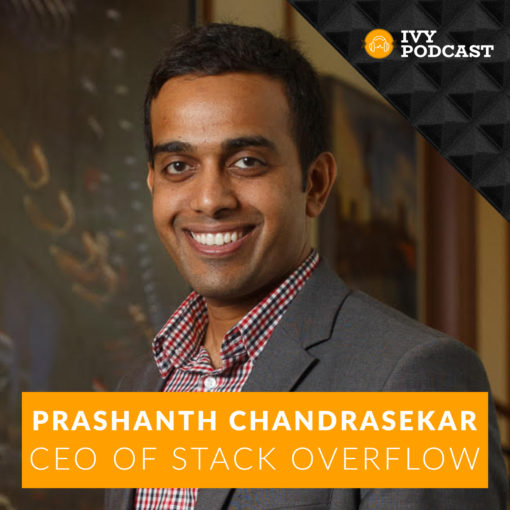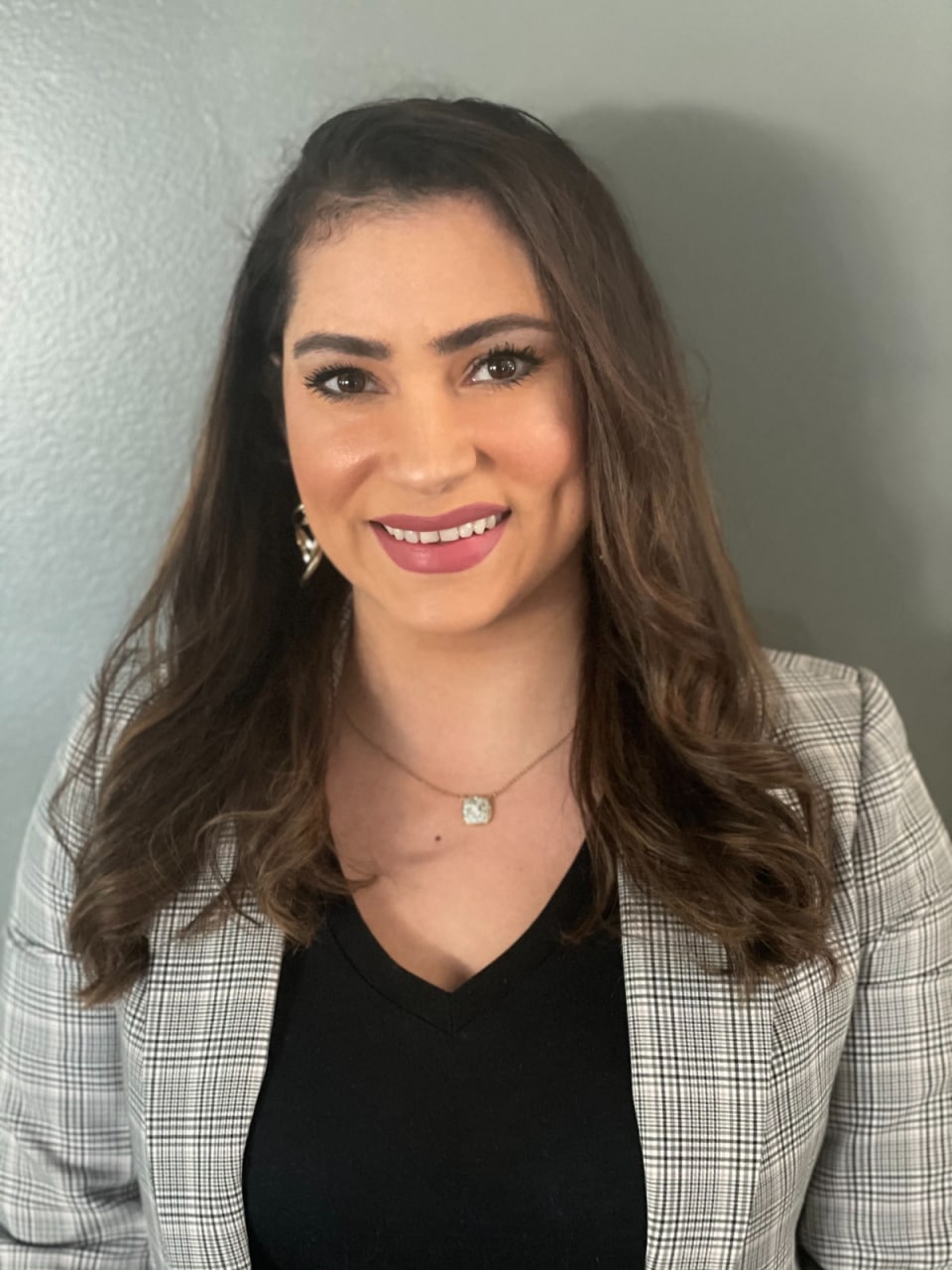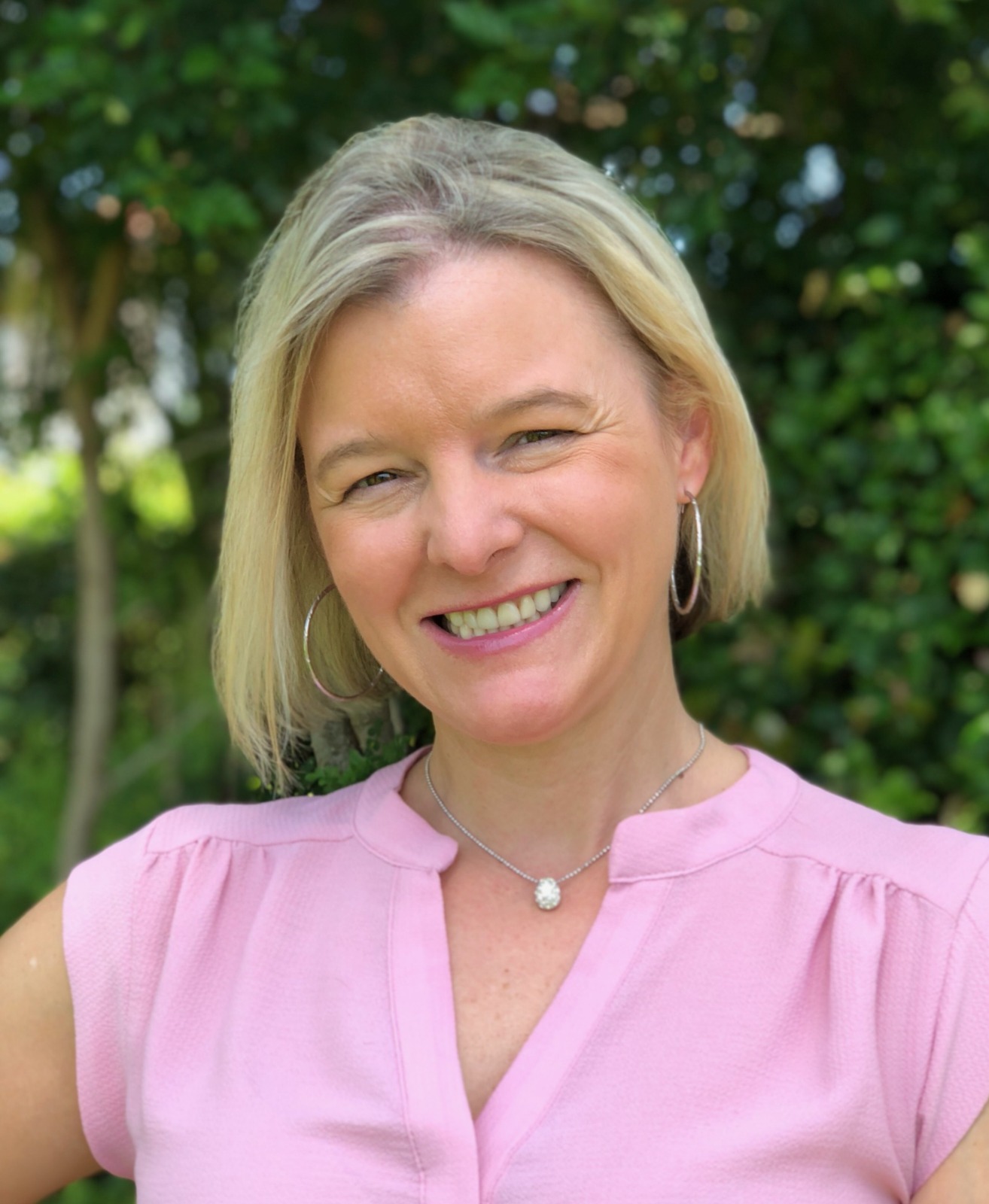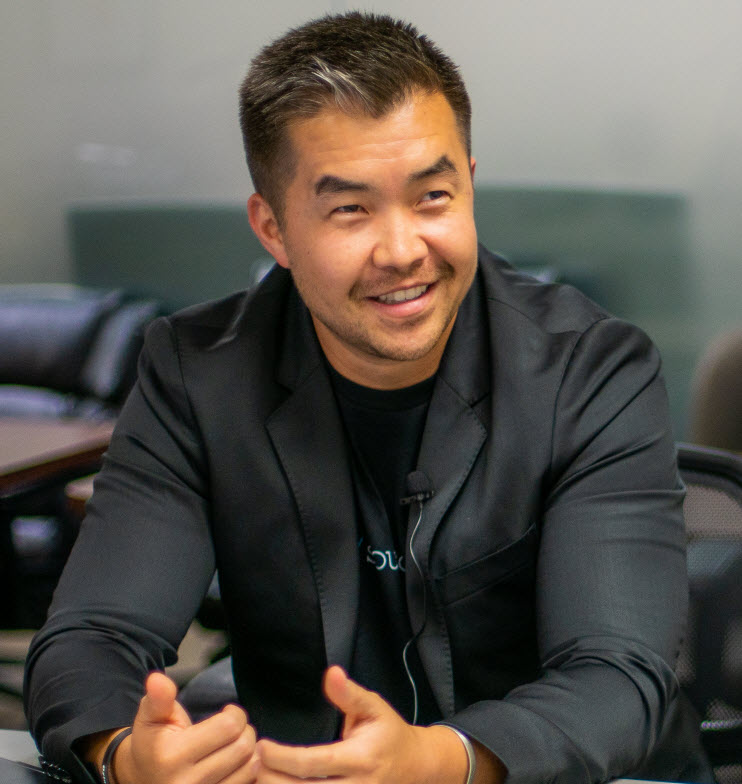
Vidette Pires leads organizations through successful technology initiatives and transformations. With a 15-year track record of building teams, products and technology programs from the ground up, Vidette is consistently sought to solve long standing challenges and drive results. Vidette Peris is seeking an opportunity which leverages her technology and people management skills to positively impact the lives of people.
Episode transcription:
C: All right. Vidette Pires, welcome to the Ivy Podcast. Thank you so much for being with me today. V: Likewise. Thanks for having me. I'm so excited to be here, to be talking on a subject that we both are so passionate about. C: It's true. I don't get to interview a lot of women in technology because you know, there's so few of us, so this is especially exciting to me to be able to interview somebody that I know has had a lot of similar experiences and background as I had. So can you tell us a little bit about your background and what it is you're doing in your current role? V: Of course. So in the last 10 years, specifically as a technology executive, I've been managing the IT function for organizations and these days coordinate technology is moving so fast. I find myself at the table for anything from digital transformation to enterprise solution. Cybersecurity, you talk deliberately, the list is long and exciting. But that's not where my career started. My career actually started 20 years ago as a software engineer. And I spent my first decade in it. Really just immersed with Tahquitz from project management and business analysis, engineering, architecture, just supporting real senior leader executives in transforming organizations. And along the way, I was really blessed to work with a lot of leaders. С: Well, great. And I know as female executives, you've held various positions within technology, starting from a developer and moving up through the ranks. So what are some of the challenges that you see that are facing women? Both in it. And in corporate culture and organizations in general. V: Gosh, so many things, so many thoughts of flooding remind me right now. Okay. Let me just start out by saying that woman or a man in it, it's a challenging function. The fact that today we expect it to be on 24, seven, 365 days a year. And we bring high pressure on work-life balance and new sourcing, but specific to when, and I've experienced some of these challenges. I've supported women peers in. The first thing that comes to mind is mentoring. You know, we may have expressed time and time again, that they are looking to further their career. They're looking to broaden your skill set and are looking to partner with people who will help them in that journey. And they find that they cannot really find mentors and partners to help them. The other thing that comes to mind is gender bias. Whether you're in technology or whether you're on the executive track, we are conditioned and this is not something we're doing intentionally. It is just decades of conditioning. We think that these roles are lending towards men, whether it's executive class or technology for that matter, even doctors and surgeons, right. It's just not necessarily something bad we're doing. We are just going to care for these mind models along the way. And in that week where you've been paying inequality. The McKinsey report this year shows that women are making 81 cents the dollar in comparison to their male peers. And that gap actually widens as women progress in their career. And what's even more questioning is that women of color actually make about some heights and in comparison to the men. And then there's a lot of winning expires. The need to have to fit in with the boys. They express having to change their communication style, their leadership style and management style, presentation styles in order to be like, if they're in and that can be very draining. And while we are talking about a boys club, there is also, let's be say a girl's club, right? I have observed that. Not all women, but sometimes women do have challenges partnering with other women. And they have difficulty sharing this experience together. So those are some challenges that come to mind. Another one that I personally experienced this type of here, we still bear childcare as a major responsibility. Are women even more so right now with working from home and trying to balance everything. C: Yeah, it is crazy. Right. I agree. V: And me personally and technology, you know, aren't technology, our teams are globally dispersed today. And with that comes a hightower climate. And it's hard for women to travel, especially when you're ready to think about it. And you're looking for flexibility as well, because a lot of the technology go lights happen off production. And so that does greens in need to always be on, always be present, which can be a challenge. C: And I think almost sometimes even being more hyper present, like you feel the need to. Even more present because you feel like, your potential, your counterparts and, and male counterparts are doing that. They're always available. They're always on. And what I find is, especially as a female, I feel like I need to be just as on and just as available to kind of go against the impression that I am a mom and I do have things to do outside of work and not that men don't do too. But I think a lot of the burden especially tends to fall on women. And especially, when you're talking about childbearing or the house or the home or taking care of things and now more than ever. People working from home because of the pandemic. I think a lot of that burden and I'm sure you've seen the news reports as well, where a lot of that burden really is falling on women and even falling out of the labor force, unfortunately, because of all of the extra burden of trying to do homeschooling and working from home, it's difficult. V: It's very, very difficult. C: So, what do you recommend as far as overcoming some of these totals? I mean, you've listed a lot of challenges and I've certainly encountered a lot of them myself. So what are some, or your recommendations on how women can overcome some of those hurdles? V: So I don't know if I have all the answers, but our team share what's really worked for me, when it comes to mentoring. And I really believe I'm mentoring is the elevate. Women have a tendency to prefer a female mentor. And it's just a comfort zone. I would urge e-com mentors primarily because if we know that 20% of tech roles are fielded by women annually, 21%, that in itself tells you that there aren't many women out there to manage. My personal experience. All my mentors, all my like-minds, all my coaches in my professional life are male. And in fact, in my very early career, working with the people who came tapping a nice boulder and saying that I need to look beyond this and have you considered some other roles where actually now will help me see beyond the role. And so I'm very grateful for that. It's worked very well. Now I know sometimes being a mentee is challenging because you do have to expose your vulnerabilities and working out is especially hard if you're working with a mentor in your organization. And so my suggestion for women would be in scenarios like that, reach out to perhaps your past managers from previous parents, where you can't confidently tell them what your gaps are, as you see and work with them. Or there are a lot of great senior male leaders out there who want to elevate women and we have to speak them out at this point, and that's really gonna help this. And if I may share a personal story with you here in my very early career, I used to genuinely feel that men did not understand my struggle in technology and men did not understand my struggle as a leader. And I realized I was operating with bias because the men that I work with today to elevate my career, one of them is actually coaching their own daughter, who leadership challenges. The other is x-ray ordering his wife in her leadership. And so through my personal relationships, I am the beneficiary because they truly understand what I'm going through, and so I urge my men to think. Can your male leaders as people, first date, you are husbands. They too are dads and granddads and so on, and they truly do have the ability to understand our struggle. C: I've also been very fortunate, had a lot of great male leaders that have looked out for me or helped me, or found ways to continue to grow in the organization. So I've really been very lucky, but it is so true that it's really hard to find female mentors. And you really do need to look at males because there's, I find there so few women in leadership, executive roles. It's challenging to find them and everyone wants to look at them, females especially, want to look at them to be someone that they can really help guide them. Because there's just so few. And I'll tell you a personal story as well. So I went to a breakfast and they said, it was all women, and they said they were going to be pairing at the tables, they would be pairing some of the senior leaders with younger leaders. I was so excited cause I was like, Oh, this is exactly what I've been wanting and I got there and I realized that they had actually put me, I was a senior leader and so well. In my mind, I didn't, I thought I was going to be, or with other people that were in more senior roles than I was. But then I got there and I realized that I was actually the senior leader at the table. I love to be able to mentor women. And I love to be able to help others as well and especially help them, as they navigate through their early careers. But as female, more senior leaders, it's nice to be able to find some of those mentors as well. But I do appreciate your, your thoughts on male leaders. Cause that's also very, very important. I mean, we shouldn't just be looking at females. We should be looking at, you know, men and women in those various roles that can really help to elevate us. V: And that's an important that's that's such a beautiful story begins now, it's important because even women who are in leadership roles, right. We feel like pastors and we have to get over that in order to help other women. That's what I did. So it's, that's an amazing story. C: I also, I just think I'm younger than I really am. So I think that's probably, I just want to feel like I'm younger and not be one of the seniors at this point, so I was trying to make myself feel better, but they rained on that program. V: So gender bias, right. I really believe that this is something that's just going to evolve over time. I really am optimistic and hopeful on that one. I recently actually choked on the Harvard implicit gender test online. And I realized that I too had biases. And the great part about biases is, well, the one thing about it is we all have them, even though we think I don't and I was quite surprised. And the great part about them is. Once, you know what your biases are. It's kind of like drying me once, where your blind spots are, how to adjust your rear view mirrors. And I think Mike is actually helping me further my career. So I would ask women to be aware of those biases, whether it's even biases about working with male leaders, right. You got to identify them and know what they are. C: I think the other thing that's interesting about that is, um, when you talk about bias and now you're looking at how, you know, AI and doing the resume parsing and going out and, and how there's a lot of bias in that as well, because the words that they've traditionally used are words it's based on historical data that is mostly male resumes, right. Or resumes coming from a very predominantly male population and of applicant pool anyway. So, you know, it's interesting how even, even unconsciously in technology bias is built into it without even knowing it. And, I'm glad that that's being recognized and corrected, but unfortunately, you know, that's already been occurring for, for several years now where, it's been potentially misidentifying candidates just because of the words that are used on their resumes. V: Very true. Very true language, also kind. Makes important to reason as to why women really need this to be at the table. As we devise all these technologies, right. To cash that bedding and along the lines of pay inequity. The best advice I can give here is negotiate and negotiate hard and do your research, reach out to find sometimes it is hard to get the numbers, but also think beyond the base compensation, think about the benefits that come with the package in terms of stock options, equity, and so on, because you really have to learn how to negotiate the entire package and reach out to your mentor is, you know, they're how how'd you approach these negotiations there. Some great classes on bringing as well. Negotiating compensation package. C: So I think it's interesting because I think more and more you now, too, you're hearing from not just women, but also men who are having those conversations. I think previously, you know, a lot of people didn't talk about it yet, and you didn't talk about salary. You didn't talk about benefits and you didn't talk about that stuff, but more and more, I mean, you're seeing it with. Celebrities and movie roles and you're seeing it on television and you're certainly seeing it in corporate environments as well, where people are having those conversations. And I think it's really important to be able to bring all of those, not just negotiation, but also all of those data points and really know that going in. And because you're so much better off when, when you have all of that working for you. V: Absolutely. And I think that's changing, you know, we're more open to talking about it. And in that same line it's as hiring. Cause we all have a call to action, right? We've always looked at this as driving the bottom line, your organization, but really our call to action. Now in these conversations is how do we turn that around? How do we make sure that wouldn't be hiring people? And we are promoting them as well in terms of promoting women are women. And we're keeping them in the feelings that are in alignment with the account. And so we definitely have a role and a role to play in contributing to closing that gap. C: So, this is a great segue into you as someone that's been at the state of the table and been in executive roles in it, how do you cultivate female leaders and help elevate them so that, you know, they're there. They also have a seat at the table. I know we had a discussion prior to, so this is our discussion now where we talked about it's so difficult to have that seat at the table. And not only that, but also identify the next level of future leaders to be able to come up through the ranks as well. So, what are your thoughts on kind of cultivating that and helping female leaders really succeed? V: Right. So one is mentoring. Mentoring is key, you know, in terms of elevating the mate, the next is partnership, really partnering with your male counterparts or female counterparts to make sure you have that seat at the table. I have challenges keeping those at the table. And that's when I reached out to my male peers and have asked for their support directly, will you help me with this? And I have never heard a no. I really, very often, I believe in reaching out to you, my boss and asking for your support. And so there's the challenge of getting the seed of the supporter seat at the table. And then there's the challenge of keeping that client. And this is where it really is teamwork. It really takes a village to make sure that the other thing is also feeding a culture of inclusion. It's very easy to appoint who, I mean in seats out of leadership, but what does it really take to be? And we have to look at flexibility because we do need flexibility to count your calendars or whatever. Have you. We also need an environment that really listens to the recommendations we're making, eat them and also respect family and considerate them and be part of the decision making process. Right? And so those are all key elements in creating cultures that really include when you need to and keeping the inaccuracy, keeping you up. C: I think it's a great point because I think, um, you know, you're now there's a, especially within fortune 500 fortune 100 companies, I think more and more companies are recognizing that it's very important to have women in leadership roles and board roles as well. But it's one thing to appoint them and say female leader, another thing sure. That you're creating. Inclusion they're, they feel like they are a real partner in the decision-making process and the strategy for the company and not just the token female. That's been appointed. V: I've always been involved in advisory and consulting my entire career. And it's just something that comes naturally to me, it's helped me to stay involved in my community, helped me do that, but it also keeps me exposed to everything that's happening in the industry. And most recently, something that really stuck with me answered it. We're talking about leading seats for women at the table. But what if weak mode women positioned where they could create their seat at the table? And that's kind of something that really resonated with me. And so, as I looked at all the communities that I work in, I started to think about how I can help women entrepreneurs and what are really the challenges you're experiencing. And how can I help them create those seats at the table? And the truth is women have, I know in general their needs for technology. I know plane business, right? Either they're building a viable product to take to market, or they're trying to figure out how do I use technology to my mind. And as I started to talk to them, I realized that they really do have a need. And oftentimes because of all entrepreneurs and then you can start a pace, their resources are limited. And so I'm really trying to find ways on how I can help them either choose technology surrounding your business or help them in an advisory role and giving them advice to build out. C: And so I'm sure there's a lot of challenges that come with that as well. So can you describe some of the challenges, and I'm guessing there's challenges with startups, but then I'm guessing that there's probably some specific challenges that female entrepreneurs are facing. So, is there something specific that you're seeing as you, as you're working with these various companies? V: So one challenge that a lot of female entrepreneurs really expresses getting funded. For example, venture capital, the entire space is extremely nailed down. And in fact, PitchBook said something like 2% goes to female only owned these things. So what that tells is these businesses are getting the line female entrepreneurs. They also say that they don't know how to navigate right. And so that's, Dave's their challenge and the organizations around this, there's a lot of organizations coming out to help with the degree map. And there's also a lot of organizations emerging to give them the assistance they need, whether it's state work, whatever roles. Another, kind of similar to you women and not being taken seriously either a bit as they cannot make the post six o'clock meetings for networking or someone because they're handling or they're not being taken serious surveys focused on solving problems for women only. And similar to a year ago when we heard a lot of stories emerge, there are similar stories amongst willing entrepreneurs. The good news is this is gaining traction. Even seeing these companies, your arms going up. C: One of my favorite stories is about Sara Blakely and her beginning Spanx. And she talks about that's privately held and I think she holds the majority of that company, but one of her biggest problems was finding a manufacturer that would take her product seriously. Because you know, she'd essentially taken pair of pantyhose and cut the feet off of them. And it became shapewear and when she was going out to look for manufacturers, all of the manufacturers were men and they didn't understand it, but she had one that I forget how many daughters they had, but. daughters and wife and similar to your story about mentors, you know, he went home and told them about this product and they were like, you have to call her back. Like, that's amazing. Like we need that, you know, and now you look at think about what an amazing company that is and you know, what a product as well. And it's of course spun off all of these other, um, shapewear products, you know? So it's just such an interesting story, but you're right. It's that finding the right men, women, whatever that support you and really understand it. But also the men looking and saying, okay, you know, maybe I don't get it. Maybe I don't understand shapewear, but you know, I'm going to go home and talk to my wife or my daughter, or my friend or someone that does understand it. I appreciate everything that you're doing to help open the doors and really help women and startups because there's such a, there's such a gap in that space of really female entrepreneurs really making it and getting their companies really up and running. V: Right. C: So looking back, right. I mean, we've had a few years as much as probably I don't want to admit it. As a female leader, we've had a few years in this space. So what would you, what advice would you give to your younger self and what would you say, you know, in hindsight that, you've learned, and that has really shaped the course of your career and, and perhaps advice that others can follow as well. V: Great question. So the first thing that comes back to mind, as I reflect on, is to define success for yourself as you see it. And this is interesting because I was recently reading this stat men and women actually define success. Very definitely. And there's research from HBR as well as Vanderbilt that shows men define success based on the income and the compensation package that you're currently receiving. More so than women/ Women on the other hand define it as the quality of relationship they have in their organization, the impact and influence they have within the organization. Also side more so than men. And this was very important to me because if you don't realize or understand how you define success, it is very easy to go from Toby to trophy and feel unfulfilled. And the only thing that's very important about this is it helped you identify whether white people with similar value systems that you should be working with and likewise identify the right companies you should be working for. And so, to me, this was a very interesting learning because it really has helped me understand things as what it is I want to do, but also how I want to go about it. And what success review. Personal story. In my younger years, I did find success as the weight of my paycheck, the title, and where in the org chart I placed. And that eventually evolved into what is the impact I have within the organization. And today it's more along the lines of what is the impact I have and what is the impact I have. And people in general, how am I going to leave this world a better place? And that is how I define success today. It's very different and it's okay to change your definition of success along the way, because we are evolving. That's one thing I think. The other thing is don't be afraid to walk away. And in the words of Kenny Edwards had the crutch when respect, especially is not being served and walking away means different things to different people. It could mean you're on a project and you need to find another project in your organization that welcomes your tasks and your ideas. It could mean you need to find another manager in the organization that you're going to better partner with. Sometimes it could mean you need to walk away from the organization because it can no longer support the next set up of your goals. And sometimes it just means you need to walk away from the meeting, it's acid, but have the courage to walk. The third thing I think about is knowing your audience.There are genuinely people out there who really want to support you and who really want to see you succeed. They are the audience. There's always going to be naysayers, but you got a lot of the difference. And that's key. And the last thing I'll leave you with here is, and this came to me very late in my career, to savor the journey and realize your destiny. And I wish I had learned this early on because, you know, I went through my period of focusing on milestones. And even though I was achieving milestones along the way, I just wasn't feeling fulfilled and had to turn around and wonder why. And that's when I realized that I hadn't favored the journey. And what that does for you is it changes the way you reflect. Now, when you start looking at the journey, you can see yourself and how you evolved along the way, how people have contributed to that in evolution. And you realize that there's a whole village out there supportive of you and just knowing that is very empowering, right? Empowering you to. C: I think that's great advice for that. All of those, those points are really important. And I don't know about you, but I wish I had known of those 20 years ago. Cause I think going in, especially under look enjoying the journey as well, right? So enjoying the journey of the air on and knowing that where you are now is a product of the journey that you've been on. There's a whole future ahead as well, but also really. Walking away knowing when it, having the courage to walk away, I think is really difficult. And especially early on, that's a really difficult thing, but the more you, the more you grow in your career, the more you realize that, you know you'll find your tribe and you'll find your audience and that's really important.And, and they're going to welcome you and help you and help you grow. So. I thank you. I think this has been great. I know women and men are going to get a lot from the advice that you have. And I look forward to hearing more about you helping all of these female entrepreneurs and, and helping them become, you know, these great, uh, great companies and, and your journey in that as well. So thank you for all your time today and all of your advice. I appreciate. V: Likewise, thanks for your time, Courtney. And thanks for everything you do and creating awareness around us. Thanks for that. I appreciate it.













